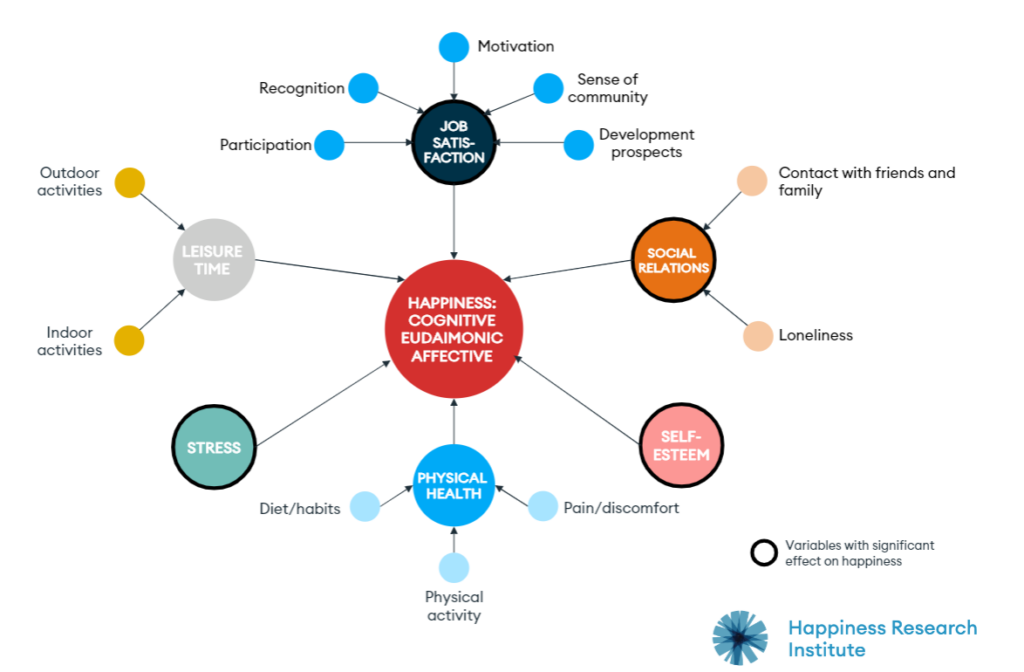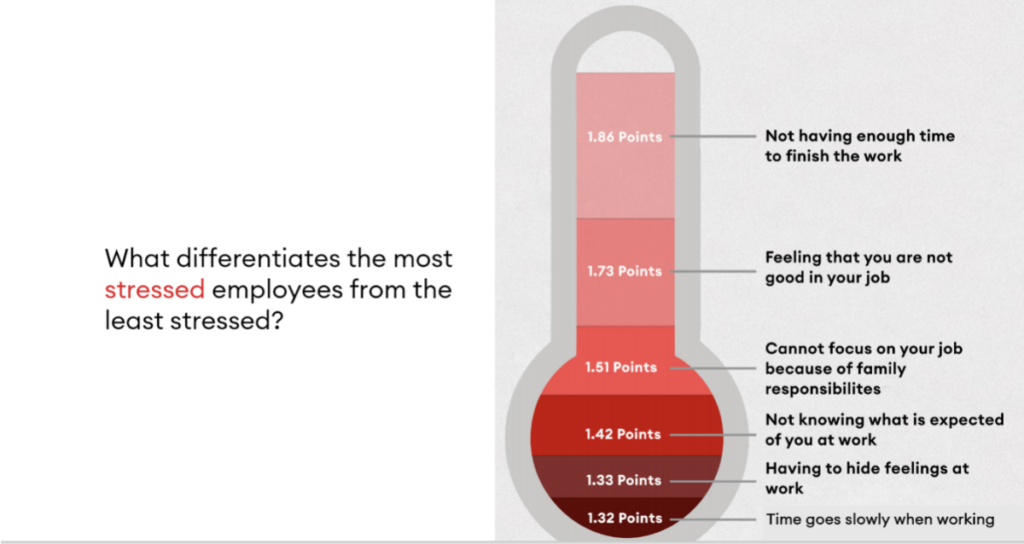This week I went to a talk by The Happiness Research Institute about how people can be happier at work.
The speakers went through some of the academic approaches to defining happiness which basically boils down to asking “How happy are you?”.
To get a more robust answer, the question should be framed to encapsulate a longer time frame (“How happy are you with your life as a whole?”) so as to not be affected by being drenched on a rainy day when the question is being asked.
Happiness at work
A Danish consulting company wanted to become one of the happiest companies in one of the happiest countries.
The Happiness guys were called upon to go in and make it happen. (You can read more at the The Valcon Happiness Lab on the HRI website.)
One research angle they did was to map out what constitutes happiness. The image below shows the main parts, with the circles in bold being most important.

Out of these, the biggest contributing factor to those people who were not happy was stress.

This graphic then broke down what caused people to be stressed at work.
Whilst it might seem quite intuitive, having these reasons laid out make them clearer to address.
Team Happy then recommended/ instituted some changes at Valcon to reduce stress and therefore increase happiness.
These include things like courses to identify and manage stress, weekly meditation and a policy of never leaving an employee alone on a project.
At the end of the presentation the HRI were able to show a graph of overall happiness that went up and to the right.
Building a low stress environment
Without getting into the particulars of good stress vs bad stress, these seems to be an interesting way to construct a work environment where people feel happy.
For example, by encouraging managers to give positive feedback (so often it’s just “constructive” feedback that’s given) and to take a few minutes to be clear on what is expected of their colleagues.
The downside vs the few minutes saved is not just someone being a bit unsure of what to do, but can have much bigger ramifications which are often hidden until it’s too late. Indeed, Team Happy’s answer “so what’s the Return on Investment of all this?!” is happy employees stay longer so you don’t have to pay to replace them.
In any case, an interesting topic to pause and reflect on.
In other news…
I’ve been geeking out on a software called Notion this week. If you’ve had any experiences using it, and wouldn’t mind sharing them, do let me know!
This post originally featured in the newsletter I write. If you’d like to sign up to receive it at the start of each month, you can do so below: